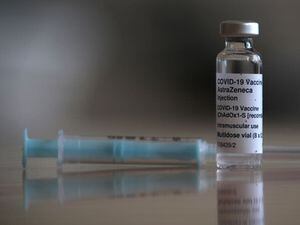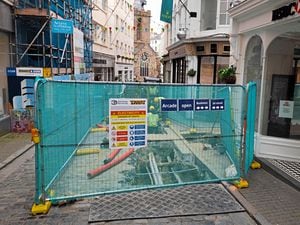Island follows UK on use of AstraZeneca vaccine
UNDER 30s will be offered alternative vaccines to the Oxford AstraZeneca, Guernsey’s health officials have confirmed.

It comes as British and European health organisations have confirmed dozens of cases of blood clots have been found in people who have received the first dose of the AZ vaccine, although more research was needed.
Director of Public Health Dr Nicola Brink said blood clot and low platelet count cases were extremely rare.
‘Of importance is the fact that vaccines are the Bailiwick’s best way out of this pandemic and provide strong protection against Covid-19,’ she said.
‘As of the 31 March, the Medicines and Healthcare products Regulatory Agency reported 20.2 million doses of AstraZeneca had been given in the UK, with an estimated overall risk of these blood clots is approximately four people in a million who receive the vaccine.
‘So, whilst the number of cases of blood clots show that the circumstances in which they happen are extremely rare, they must, of course be taken seriously.’
She said officials had been monitoring the data carefully.
‘As a precautionary measure, and whilst we have continued to investigate these cases, we have advised anyone with a headache that lasts for more than four days after vaccination or bruising beyond the site of vaccination after a few days, to seek advice from their GP or, if urgent, the Emergency Department.’
Vaccination programme lead Alex Hawkins-Drew said they had been aware of blood clot reports over the last few weeks.
‘In anticipation of an update from the MHRA, a precautionary decision was made late last week to rearrange all vaccination clinics for those 50 years of age or younger so that they were given the Pfizer-BioNTech over the Easter weekend,’ she said.
‘Now we have the update from the MHRA and the new JCVI guidance, as an extra cautionary measure, we will continue to ensure that anyone under 30, with no underlying health risk, will receive the Pfizer-BioNTech vaccine (or the Moderna vaccine, when available) when they are invited to make their vaccine appointments.’
She said they appreciated that people would be concerned if they had already received the vaccine and were under 30.
‘If they haven’t suffered from a headache that lasted for more than four days after vaccination or bruising beyond the site of vaccination after a few days and were generally well during the seven to 14 days after they received the dose of vaccine, they are very unlikely to experience these side-effects,’ she said.
‘The data from the MHRA suggests that all reported adverse incidents of this type have been associated with the first dose of vaccine.’
Those under 30 who are due to receive a second AstraZeneca vaccine will get it.
Public Health Services staff are liaising with Alderney and Sark to understand the impact of the MHRA decision on the vaccination programmes there, as they have used the AstraZeneca vaccine due to logistical restrictions around the movement of the Pfizer vaccine.
In Guernsey, nearly 37,000 vaccinations have been given.
As of the end of March in the UK, there have been 79 case reports of blood clots - in 51 women and 28 men - after the first dose of vaccine and 19 of these died. Three of the 19 were under 30 years old.
England’s deputy chief medical officer Professor Jonathan Van-Tam said the new recommendations should not affect the UK vaccine schedule, assuming the supply of the Pfizer and Moderna vaccines arrive as expected.





